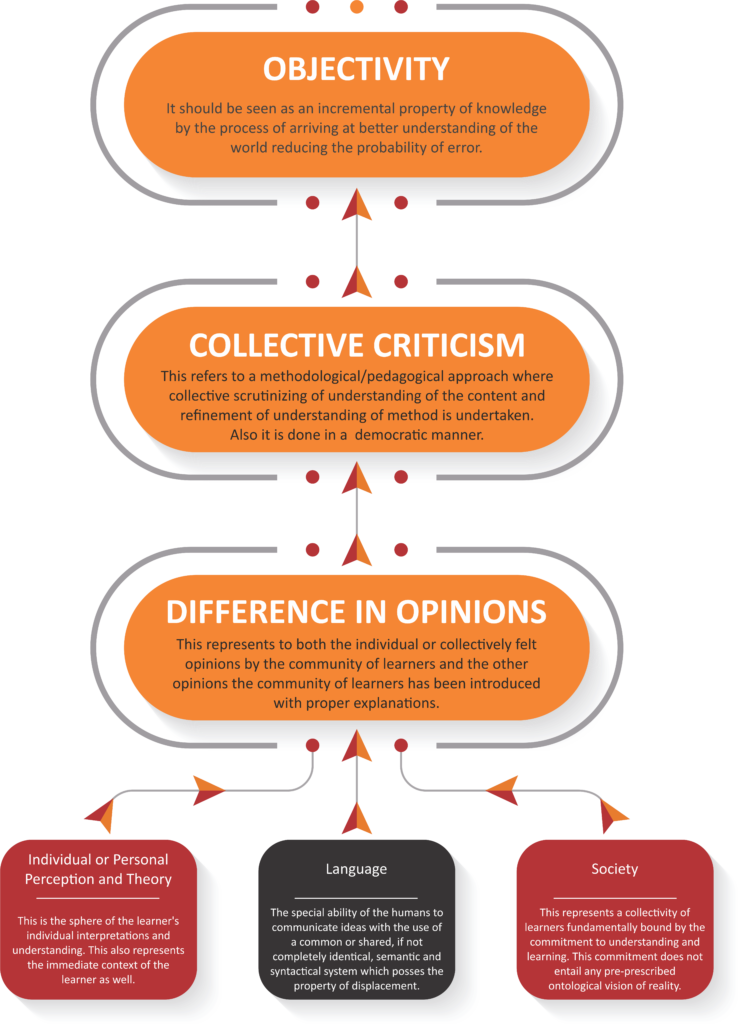Pedagogy, taken as an academic discipline, addresses how knowledge and skills are exchanged in an educational context, and it considers the interactions that take place during learning as well as it encompasses an alignment between curricular objective and child development.
Teaching-learning processes should be evolved keeping in mind the child’s context that how they learn; taking care of the environment, background and circumstances in which a child is growing up. Not only this but the active engagement of every child and facilitating them to be critically engaged and construct meaning through collective reflections.
Approaches and material developed should have a direct connection with the context of the children so that they can understand better and also develop an ability to questioning and exploring the world. The entire approach should broaden the horizon of the children where they can establish a direct connection between what is immediate in their environment and where their curricular objectives and their curiosity leads them.
The teaching-learning process should have an active inquiry-based dialogue with children where their questions, curiosities, and opinions become the departure point for interaction.


